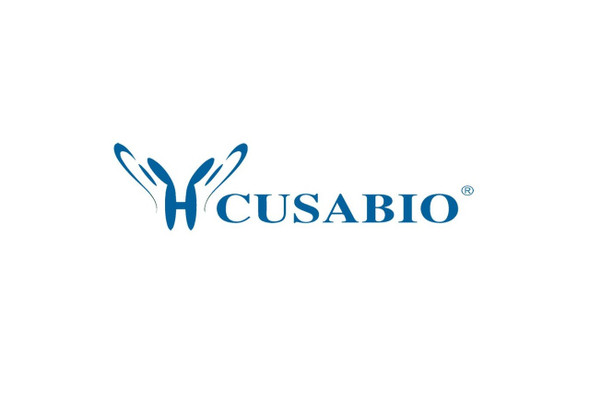Cusabio Human Recombinants
Recombinant Human Probable tRNA N6-adenosine threonylcarbamoyltransferase (OSGEP) | CSB-EP878842HU
- SKU:
- CSB-EP878842HU
- Availability:
- 13 - 23 Working Days
Description
Recombinant Human Probable tRNA N6-adenosine threonylcarbamoyltransferase (OSGEP) | CSB-EP878842HU | Cusabio
Alternative Name(s): N6-L-threonylcarbamoyladenine synthase
Gene Names: OSGEP
Research Areas: Others
Organism: Homo sapiens (Human)
AA Sequence: MPAVLGFEGSANKIGVGVVRDGKVLANPRRTYVTPPGTGFLPGDTARHHRAVILDLLQEALTESGLTSQDIDCIAYTKGPGMGAPLVSVAVVARTVAQLWNKPLVGVNHCIGHIEMGRLITGATSPTVLYVSGGNTQVIAYSEHRYRIFGETIDIAVGNCLDRFARVLKISNDPSPGYNIEQMAKRGKKLVELPYTVKGMDVSFSGILSFIEDVAHRMLATGECTPEDLCFSLQETVFAMLVEITERAMAHCGSQEALIVGGVGCNVRLQEMMATMCQERGARLFATDERFCIDNGAMIAQAGWEMFRAGHRTPLSDSGVTQRYRTDEVEVTWRD
Source: E.coli
Tag Info: N-terminal GST-tagged
Expression Region: 1-335aa
Sequence Info: Full Length
MW: 63.4 kDa
Purity: Greater than 90% as determined by SDS-PAGE.
Relevance: Component of the EKC/KEOPS complex that is required for the formation of a threonylcarbamoyl group on adenosine at position 37 (t6A37) in tRNAs that read codons beginning with adenine. The complex is probably involved in the transfer of the threonylcarbamoyl moiety of threonylcarbamoyl-AMP (TC-AMP) to the N6 group of A37. OSGEP likely plays a direct catalytic role in this reaction, but requires other protein(s) of the complex to fulfill this activity.
Reference: "Sequencing analysis of a putative human O-sialoglycoprotein endopeptidase gene (OSGEP) and analysis of a bidirectional promoter between the OSGEP and APEX genes." Seki Y., Ikeda S., Kiyohara H., Ayabe H., Seki T., Matsui H. Gene 285:101-108(2002)
Storage: The shelf life is related to many factors, storage state, buffer ingredients, storage temperature and the stability of the protein itself. Generally, the shelf life of liquid form is 6 months at -20?/-80?. The shelf life of lyophilized form is 12 months at -20?/-80?.
Notes: Repeated freezing and thawing is not recommended. Store working aliquots at 4? for up to one week.
Function: Component of the EKC/KEOPS complex that is required for the formation of a threonylcarbamoyl group on adenosine at position 37 (t(6)A37) in tRNAs that read codons beginning with adenine. The complex is probably involved in the transfer of the threonylcarbamoyl moiety of threonylcarbamoyl-AMP (TC-AMP) to the N6 group of A37. OSGEP likely plays a direct catalytic role in this reaction, but requires other protein(s) of the complex to fulfill this activity.
Involvement in disease: Galloway-Mowat syndrome 3 (GAMOS3)
Subcellular Location: Cytoplasm, Nucleus
Protein Families: KAE1 / TsaD family
Tissue Specificity: Widely expressed at low level. Expressed in heart, placenta, liver, kidney, lung, brain, skeletal muscle and pancreas.
Paythway:
Form: Liquid or Lyophilized powder
Buffer: If the delivery form is liquid, the default storage buffer is Tris/PBS-based buffer, 5%-50% glycerol. If the delivery form is lyophilized powder, the buffer before lyophilization is Tris/PBS-based buffer, 6% Trehalose, pH 8.0.
Reconstitution: We recommend that this vial be briefly centrifuged prior to opening to bring the contents to the bottom. Please reconstitute protein in deionized sterile water to a concentration of 0.1-1.0 mg/mL.We recommend to add 5-50% of glycerol (final concentration) and aliquot for long-term storage at -20?/-80?. Our default final concentration of glycerol is 50%. Customers could use it as reference.
Uniprot ID: Q9NPF4
HGNC Database Link: HGNC
UniGene Database Link: UniGene
KEGG Database Link: KEGG
STRING Database Link: STRING
OMIM Database Link: OMIM









